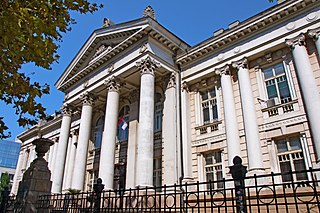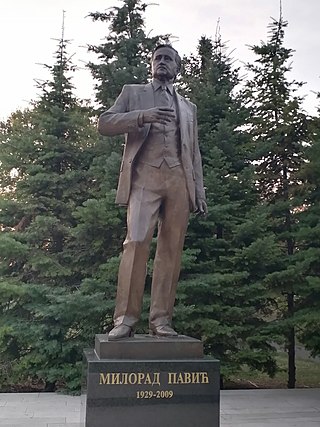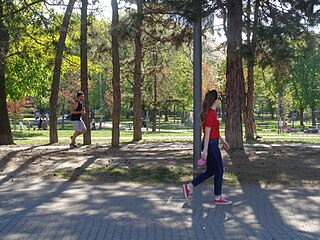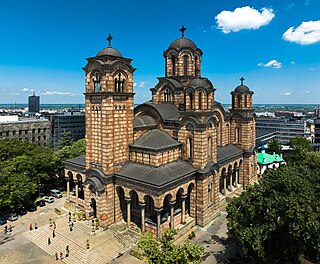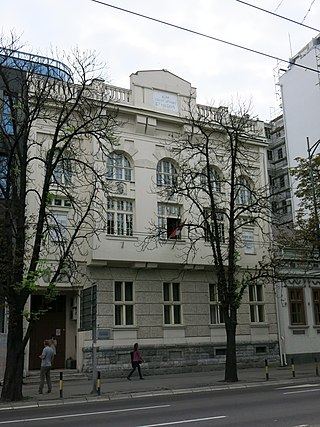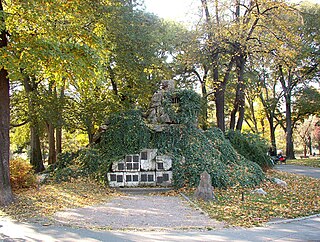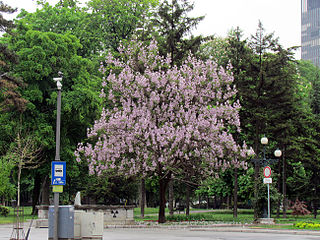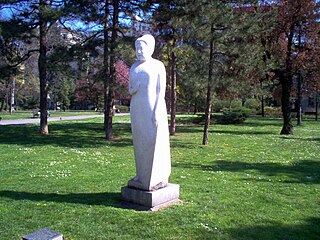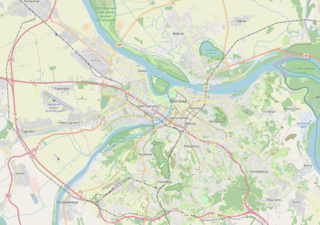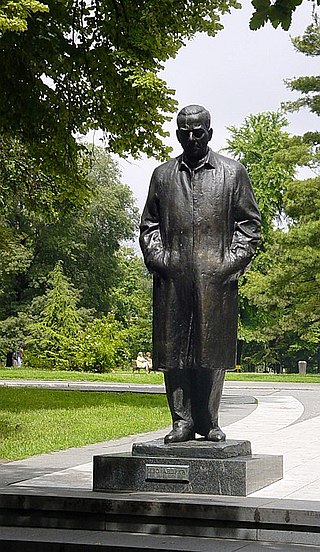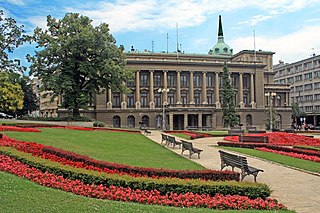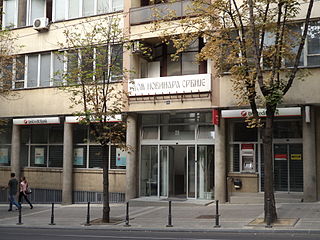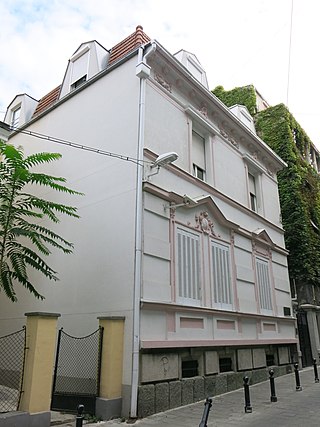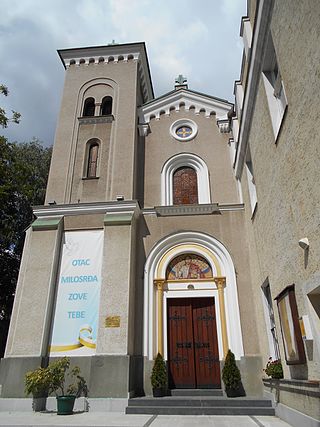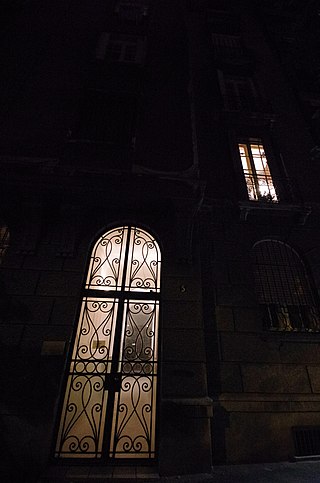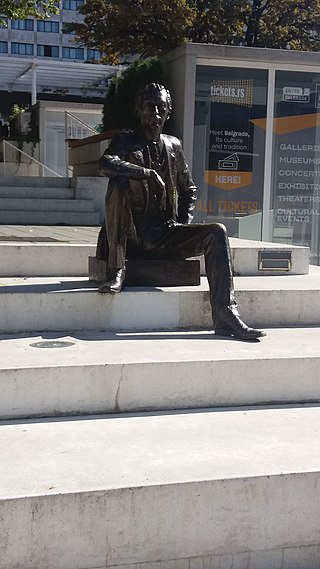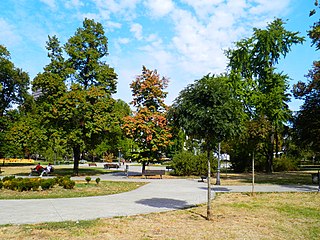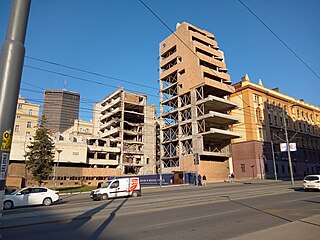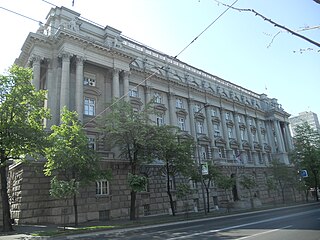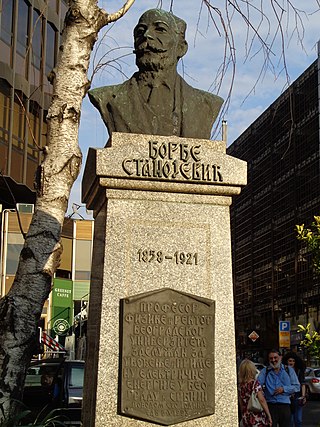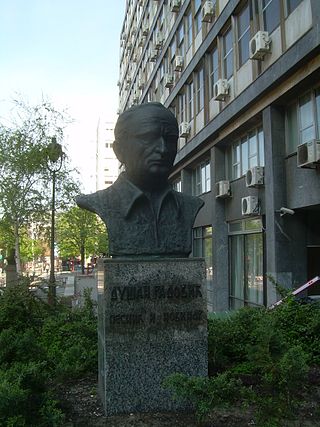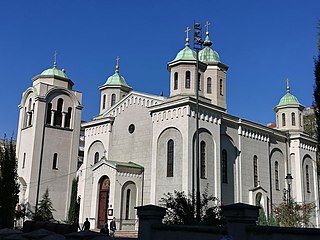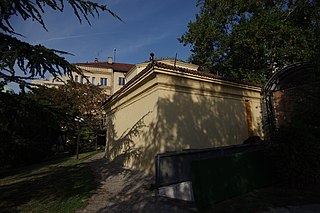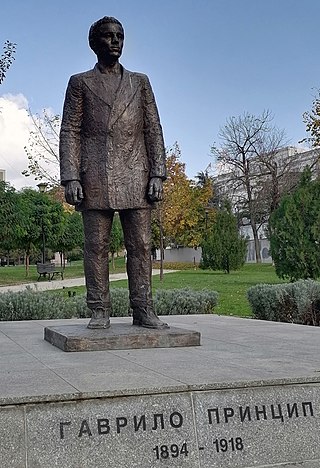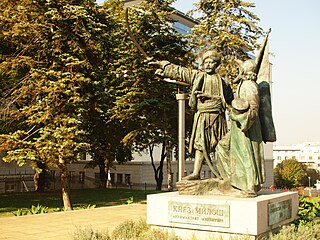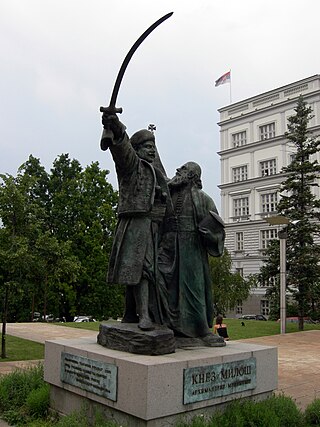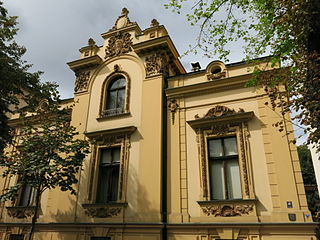Self-guided Sightseeing Tour #5 in Belgrade, Serbia
Legend
Guided Free Walking Tours
Book free guided walking tours in Belgrade.
Guided Sightseeing Tours
Book guided sightseeing tours and activities in Belgrade.
Tour Facts
5.6 km
148 m
Experience Belgrade in Serbia in a whole new way with our free self-guided sightseeing tour. This site not only offers you practical information and insider tips, but also a rich variety of activities and sights you shouldn't miss. Whether you love art and culture, want to explore historical sites or simply want to experience the vibrant atmosphere of a lively city - you'll find everything you need for your personal adventure here.
Activities in BelgradeIndividual Sights in BelgradeSight 1: Svetozar Marković University Library
The University Library Svetozar Marković (Serbian: Универзитетска библиотека Светозар Марковић) is the main library in the University of Belgrade system, named after Svetozar Marković, a Serbian political activist in the 19th century. It is located on King Alexander Boulevard, close to the Faculty of Law and adjacent to the Faculties of Civil Engineering, Electrical Engineering, and Architecture. Serves the educational and scientific needs of students, academics, and scientists. Library Day is 24 May, a day commemorating Slavic educators St. Cyril and Methodius. At the founding of the library, the collection contained 57,254 publications consisting of monographs and serials. Today, the library contains roughly 1,700,000 publications.
Wikipedia: Belgrade University Library (EN), Heritage Website
Sight 2: Monument to Heydar Aliyev
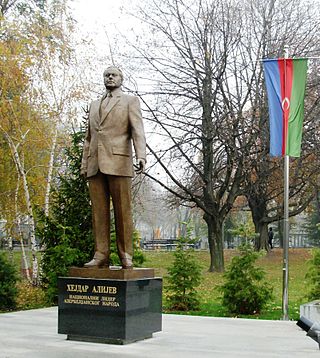
The monument to Heydar Aliyev is a monument in Belgrade. It is located in Tasmajdan Park, Palilula municipality.
Sight 3: Споменик Милораду Павићу
The monument to Milorad Pavić is a monument in Belgrade. It is located in Tasmajdan Park in the municipality of Palilula.
Sight 4: We were just children – Monument to the children killed in 1999 NATO bombing
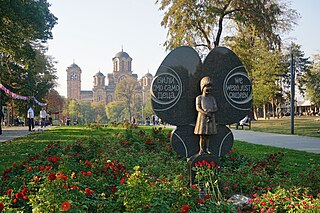
The Monument to the Children of the Victims of NATO Aggression is a monument in Belgrade. It is located in Tasmajdan, across from the Church of St. Mark in the municipality of Palilula.
Wikipedia: Споменик деци жртвама НАТО агресије у Београду (SR)
Sight 5: Tasmajdan Park
Tašmajdan Park, colloquially Tašmajdan or simply just Taš, is a public park and the surrounding urban neighborhood of Belgrade, the capital of Serbia. It is located in Belgrade's municipality of Palilula.
Sight 6: Црква Свете тројице
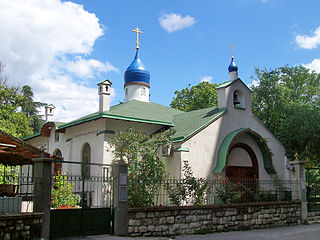
The Church of the Holy Trinity, also called the Russian Church, in Belgrade is a metochion of the Russian Orthodox church in Belgrade, Serbia. It was erected in 1924 according to the plans of Russian émigré architect Valery Stashevsky and was meant mainly for refugees from Soviet Russia who arrived in Serbia in thousands from 1920, after the defeat of the White Army in European part of Russia in the Russian Civil War. The church is located on the northern edge of the Tašmajdan Park, next to a much bigger St. Mark's of the Serbian Orthodox Church.
Sight 7: Saint Mark's Church
The St. Mark's Church or the Church of St. Mark is a Serbian Orthodox church located in the Tašmajdan park in Belgrade, Serbia, near the Parliament of Serbia. It was built in the Serbo-Byzantine style by the Krstić brothers, completed in 1940, on the site of a previous church dating to 1835. It is one of the largest churches in the country. There is a small Russian church next to St. Mark's.
Wikipedia: St. Mark's Church, Belgrade (EN), Website, Heritage Website
Sight 8: Музичка школа Станковић
"Stanković" Music School in Belgrade, founded in 1911, under the auspices of King Peter I, as a musical and teaching institution. It is one of the oldest educational institutions in Belgrade. When it was established, it operated within the Choral Society "Stanković". It was named after the Serbian composer, and pianist Kornelije Stanković who was the first to introduce harmonics of the Serbian root and spiritual compositions.
Sight 9: Осматрачница српске врховне команде на Кајмакчалану
In World War I, after crossing over Albania, where it was annihilated, the Serbian Army recovered after a while and occupied its position at the Macedonian front, which spread across the mountain Kajmakčalan in Маcedonia. On the top of this mountain there was the observation post of the Serbian Army High Command. It is located in the Pioneers Park.
Wikipedia: Observation Post of the Serbian Army High Command on Kajmakčalan (EN)
Sight 10: Pioneers Park
Pioneers Park is a park in Belgrade, the capital of Serbia. Developed from the royal garden, which itself was a successor of a much older garden, it is today one of the central city parks. It has been open for public since 1944. The park has been declared a botanical natural monument.
Sight 11: Monument to Nadezda Petrovic
The monument to Nadežda Petrović is a monument in Belgrade. It is located in the Old Town.
Sight 12: Споменик Иву Андрићу
The monument to Ivo Andrić is a monument in Belgrade built of bronze. It is located on Andrić's Venac next to the New Palace and the entrance to the Pioneer Park.
Sight 13: Ivo Andric Museum
The Museum of Ivo Andrić is a museum located in Belgrade, the capital of Serbia. Founded on 10 October 1976, it is dedicated to the Nobel prize winning writer Ivo Andrić. It is operated by the Belgrade City Museum.
Sight 14: Presidency of the Republic of Serbia
The Novi Dvor is the seat of the President of Serbia. It was a royal residence of the Karađorđević dynasty of Kingdom of Yugoslavia from 1922 to 1934. The palace is located on Andrićev Venac in Belgrade, opposite Stari Dvor.
Sight 15: Muzej Paje Jovanovića
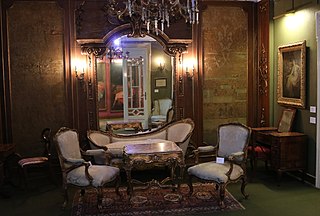
The Museum of Paja Jovanović is a memorial museum located in Belgrade, the capital of Serbia. The museum contains the paintings and personal object of one of the most famous Serbian painters, Paja Jovanović. The collection represents an exceptional fund of 211 works by Paja Jovanović created during several decades of the 19th and 20th centuries, while the legacy itself has a total of 657 objects.
Sight 16: Дом удружења новинара Србије
The Serbian Journalists' Association Building is in Belgrade, in the territory of the city municipality of Vračar. It was built in 1934, and it represents an immovable cultural property as a cultural monument.
Wikipedia: Serbian Journalists' Association building (EN), Heritage Website
Sight 17: Кућа Богдана Гавриловића
The house of Bogdan Gavrilović is located in Belgrade, on the territory of the municipality of Vračar. It was built in 1928 and represents an immovable cultural property as a cultural monument.
Sight 18: Црква Криста Краља
The Co-cathedral of Christ the King is a Catholic place of worship located in Krunska 23, in the city center of Belgrade, Serbia. It is the oldest extant Catholic church in the city south of the Sava and the Danube rivers, and was built between 1924 and 1988, the cathedral of the Archdiocese of Belgrade.
Sight 19: Дом браће Крстић
The Krstić Brothers House is located in Belgrade, at the King Milutin street no.5, since 1973, with the status of cultural heritage. The house was built in the late 19th century as a representative of a residential buildings. As there was no saved data of the architect, it was assumed, based on some elements of decoration, that the author of the project could be the architect Јован Илкић. Soon after the raising of the house, Krstic family moved in. The family were known for their two children, a renowned architects Peter and Branko.
Sight 20: Споменик Бориславу Пекићу
The monument to Borislav Pekić is a monument in Belgrade. It was erected in honor of the Serbian writer, film screenwriter and playwright Borislav Pekić.
Sight 21: Yugoslav Drama Theatre
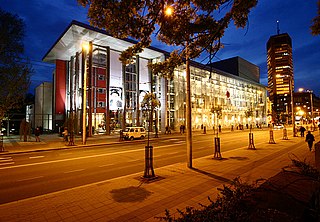
Yugoslav Drama Theatre is a theatre located in Belgrade, Serbia.
Sight 22: Manjez Park
Manjež Park is a public park situated in the centre of Belgrade, the capital of Serbia.
Sight 23: Belgrade City Museum
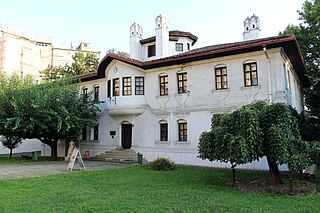
The Belgrade City Museum is a museum located in Belgrade, Serbia. Founded in 1903, the museum operates with several cultural institutions: Ivo Andrić Museum, Princess Ljubica's Residence, Paja Jovanović Museum, Jovan Cvijić Museum, Banjica Concentration Camp Museum, Collection of Icons Sekulić, Archaeological Site Vinča and Zemun Museum.
Sight 24: Ruins of Yugoslav General Staff from 1999 NATO bombing
The Yugoslav Ministry of Defence Building, also known as the General Staff Building, is a complex of government buildings, that formerly housed the Ministry of Defence of Yugoslavia and the General Staff of the Yugoslav People's Army, now housing the Ministry of Defence of Serbia. It is located in Savski Venac, Belgrade.
Wikipedia: Yugoslav Ministry of Defence Building (EN), Heritage Website
Sight 25: Стара зграда Генералштаба
The Old General Staff Building, also known as the Stone Palace and the Baumgarten Palace, houses the Ministry of Defence of Serbia. It is located in Savski Venac, Belgrade.
Wikipedia: Old General Staff Building, Belgrade (EN), Heritage Website
Sight 26: Биста Ђорђа Станојевића
Sight 27: Биста Душка Радовића
The memorial bust of Duško Radović is a monument in Belgrade. It is located on Masarikova Street, in the municipality of Vračar.
Sight 28: Вазнесењска црква
The Church of the Ascension is a Serbian Orthodox church in downtown Belgrade, the capital of Serbia. It still uses the bell under which the Hatisheriff of 1830 was announced, by which the Ottoman Empire granted autonomy to Serbia. The church was declared a cultural monument in 1969.
Wikipedia: Church of the Ascension, Belgrade (EN), Heritage Website
Sight 29: Амам кнеза Милоша
Hammam of Prince Miloš is the former Turkish bath in Belgrade, the capital of Serbia. Built in 1836-37, it was declared a cultural monument in 1948.
Sight 30: Monument to Gavrilo Princip
The Monument to Gavrilo Princip is a monument in Belgrade. It is located in the village of Savamala, in the municipality of Savski Venac, between Kneza Miloša Street in the east, Admiral Geprata Street in the north, Balkanska Street in the west and Nemanjina Street in the south in Gavrilo Princip Park.
Sight 31: Gavrilo Princip Park
Gavrilo Princip Park is a park in Belgrade, the capital of Serbia. Originating from 1836, it is one of the oldest parks in the city and in 1864 it was declared the first public park in Belgrade. Named Financial Park until 2017, it is located in the municipality of Savski Venac.
Sight 32: Monument to Prince Miloš and Archimandrite Melentije
The monument to Miloš Obrenović is a monument in Belgrade. It is located in the municipality of Savski Venac.
Sight 33: Кућа Несторовића
The family house of Nikola Nestorovic is located in Belgrade, at 40 Kneza Miloša Street, it is an immovable cultural property as a cultural monument. In 1903, the house was designed, built, lived and worked in it by architect and university professor Nikola Nestorović (1868-1957).
Wikipedia: Породична кућа Николе Несторовића у Београду (SR), Heritage Website
Share
How likely are you to recommend us?
Disclaimer Please be aware of your surroundings and do not enter private property. We are not liable for any damages that occur during the tours.
GPX-Download For navigation apps and GPS devices you can download the tour as a GPX file.
